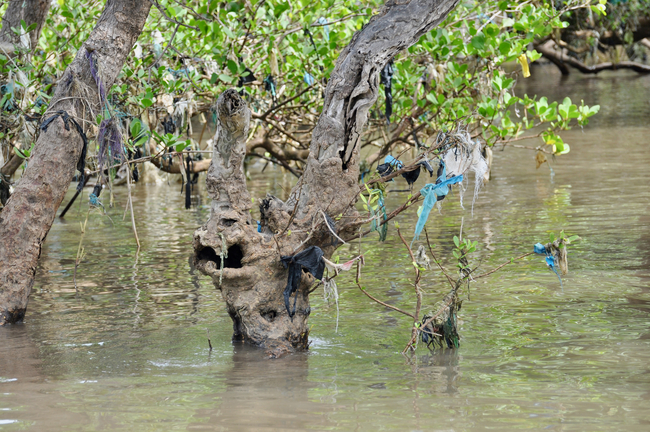Background:
Plastic pollution poses a constant threat to marine and coastal ecosystems, endangering a large number of species through, e.g., ingestion, entanglement or injuries. As a result, plastic pollution can impact the provision of ecosystem services and, directly or indirectly, those societies that live and rely on marine resources. The Marine Litter project in Ecuador (MarLi) is dedicated to reducing the volume of plastic waste that reaches the ocean, with the goal of enhancing health of coastal and marine ecosystems and species.
As an implementing partner, we will contribute to this project by conducting specialized research on the potential ecosystem-wide effects of plastic pollution in mangrove forests. Mangrove forests are particularly important in Ecuador, where hand-pickers, often women, rely on the black mussels associated to this ecosystem for their economic well-being.
Project Goals:
Our goal is to project changes in the capability of mangrove forest to provide essential ecosystem services, specifically in the context of societal efforts for marine litter reduction. To achieve this, we will
- develop an agent-based model of the mangrove forest ecosystem, incorporating both ecological elements and human actors with their economic drivers
- strive for a close collaboration with local ecosystem users, e.g. in workshops, and discuss needs and ecosystem services as well as project results
- work on the development of a monitoring system to refine and validate the model
The project findings will be shared and discussed with the community and policymakers to raise awareness about the critical connections between ecosystem services and pollution levels, ultimately driving informed action to protect important natural ecosystems and resources.
![]()





